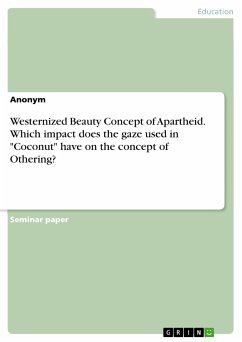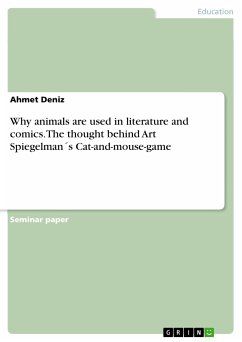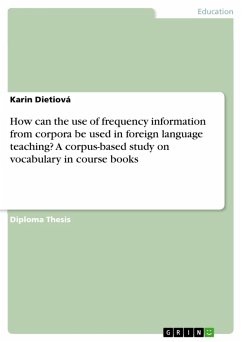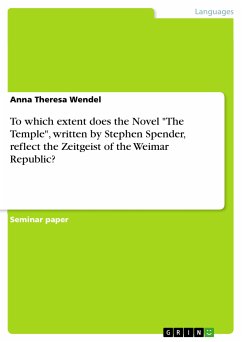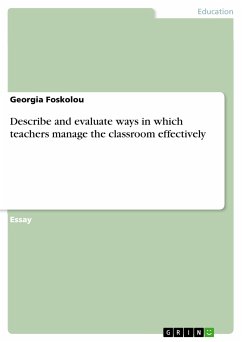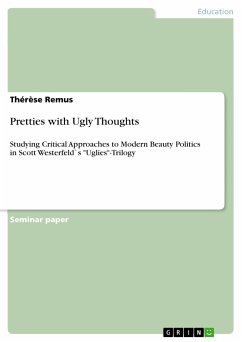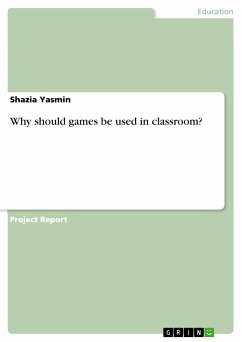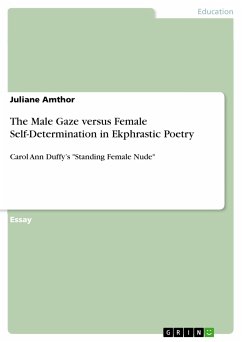Seminar paper from the year 2016 in the subject Didactics for the subject English - Literature, Works, grade: 2,0, University of Tubingen, language: English, abstract: Which impact does the gaze used in "Coconut" have on the concept of Othering and in particular on the westernized beauty concept of black women after Apartheid? Kopano Matlwa's novel "Coconut" which was firstly published in 2007 is about two black girls, Fikile and Ofilwe, who want to be "white, rich and happy". Both girls struggle to find their own identity since they are stuck between two worlds, namely the South African and the Western one which have an impact on the perception of the two main characters. The novel is divided into two parts. The first half of the book is narrated by Ofilwe and the second half by Fikile. Both girls live in Johannesburg. Although their lives seem to be completely different, they have one important aspect in common. In contrast to Ofilwe, Fikile is poor and lives with her abusive uncle in a township. Ofilwe lives with her wealthy family in a suburb. The only place where they meet is the restaurant Silver Spoon - Fikile's workplace. Ofilwe and her family have "the same Silver Spoon's Traditional English Breakfast every Sunday" and since Fikile works there, both girls know each other. In brief, the summary of this novel is the black female's struggle to find her identity in post-Apartheid. It is difficult for these women and young girls to know their identity as they are influenced by the western culture and its beauty standard. Furthermore, not only does the western influence play an important role in Coconut, so does gaze. According to the Oxford Dictionary, gaze is either a "steady intent look" or in literary theory, "a particular perspective considered as embodying certain aspects of the relationship between observer and observed". In this paper, the second definition of gaze is relevant. The concept of gaze is divided into three observer perspectives. With respect to black females, the first perspective is the one of white people looking at black women.
Dieser Download kann aus rechtlichen Gründen nur mit Rechnungsadresse in A, B, BG, CY, CZ, D, DK, EW, E, FIN, F, GR, HR, H, IRL, I, LT, L, LR, M, NL, PL, P, R, S, SLO, SK ausgeliefert werden.

